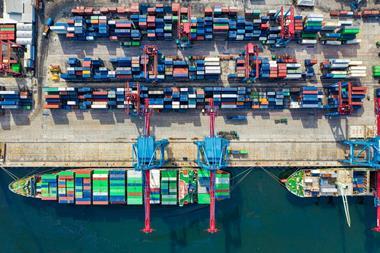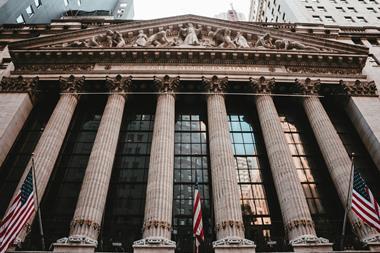The current market volatility and the perceived end of the market bull run is driving increased allocations to renewable infrastructure, according to a report by Octopus Group.
The report - The green investor: why institutional investing holds the key to a renewable energy future - revealed that allocations to renewables will increase from 4.4% to 7.1% over the next five years.
Conducted by CoreData Research, the report’s survey polled in 100 global institutional investors from the UK, EMEA, Asia and Australia, with a collective $6.8trn (€6.03trn) of assets under management.
The survey revealed that an estimated $210bn is expected to flow into the asset class over the next five years.
Of those institutions currently invested in renewables, more than two-fifths expect to increase allocations by as much as 10%, according to the survey.
The survey showed that diversification and low correlation to financial markets are the main drivers for investing in renewables.
The second biggest driver is environmental, social and corporate governance (ESG) investing as a result of end investor demand and because they want to protect their profile and image.
Despite the increasing investor appetite for renewables, a third of the investors surveyed cite government and regulatory barriers as a challenge to investing.
“Of those surveyed, the biggest factor that would cause them to increase investment in renewables would be better support and policies from government,” Octopus said.
According to the International Renewable Energy Agency, around $1.7trn of investment is needed between 2015 and 2030 to meet global renewable energy targets to combat climate change.
Matt Setchell, the co-head of energy investments at Octopus, said: “Institutional investors are waking up to the investment opportunity that comes with securing a renewable future.”
There is much to celebrate in the report, he said.
“However, while institutional investors’ contributions are on the increase there remains a long way to go to plug the funding gap. We cannot afford to view increased allocations as job done.
“More needs to be done to unblock investment to help tackle climate change. Acting now is not an option; it is a necessity.”
The report identifies the key barriers that need to be overcome to enable institutional capital to support a renewables future, Setchell said.
“Clarity on policy from government; flexible investment opportunities to suit investor needs and skilled managers who are able to identify and offset risks will be crucial to unlocking further institutional investment into the sector.”
Hiti Singh, the head of institutional funds at Octopus Group, said: “Investors are becoming increasingly aware that renewable energy infrastructure combines the opportunity to diversify with the opportunity to fulfil ESG credentials over the long-term.
“Institutions seeking to invest in longer-term structural trends amid current market uncertainty can find plenty of opportunity in renewables. Renewable infrastructure also supports ESG priorities without compromising returns.”
The biggest driver among those surveyed for pursuing renewables was the opportunity to diversify, Singh said.
“We have seen first-hand how the perceived end of the market bull-run and geopolitical risks drive institutions to seek real assets, like renewables.”

















